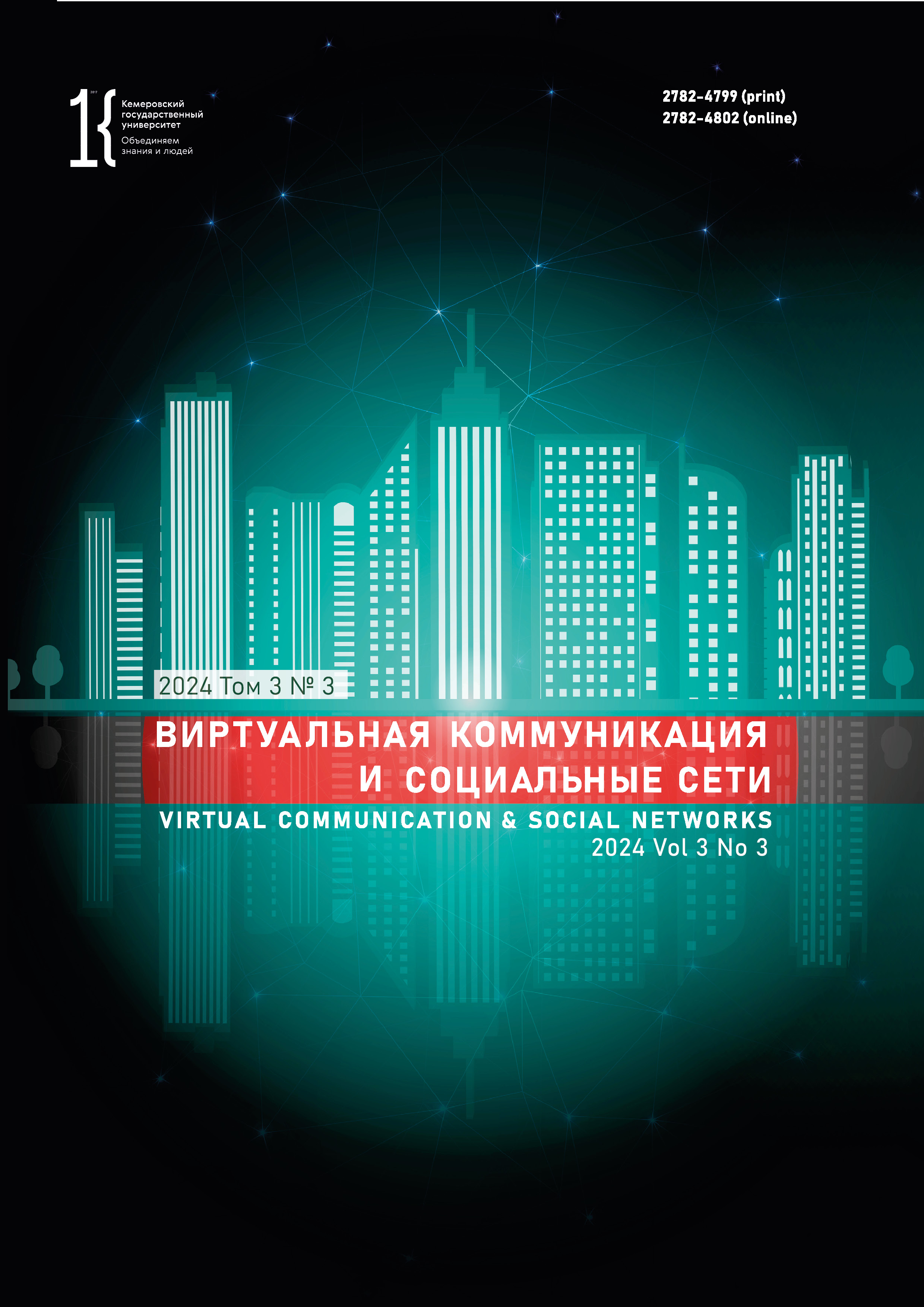Moscow, Russian Federation
Moscow, Russian Federation
VAK Russia 5.9.9
Digitalization and automation of media affect the consumer behavior of young journalists and bloggers. The research revealed the corresponding strategic vectors of social constructs in young people’s consumer behavior. It relied on the social construction of reality developed by P. Berger and T. Luckmann, as well as on the reality of mass media by N. Luhmann. The main methods of empirical research included: 1) literature reviews and secondary analysis of research on digital marketing and its impact on consumer behavior; 2) observation and analysis of the behavior of university students and young professionals in online environment. The consumer behavior demonstrated such trends as social mobility; life changes, innovation, and experimentation; rapid suggestibility and gullibility. Young people proved to be active users of modern media; they were attracted mostly to entertainment content, i.e., videos, music, podcasts, games, etc., as well as to educational platforms. The authors described and classified the basic tools employed by content creators in the context of media automation. The study revealed an increase in major threats and risks associated with the fundamental lack of public control in the digital environment, where the final content is shaped by automated processes and artificial intelligence.
media digitalization, media content, digital automation, automated programs, artificial intelligence, consumer behavior, manipulation of consciousness, young internet users
1. Akhmadulin E. V. A short course in the theory of journalism. Rostov-on-Don: MarT, 2006, 272. (In Russ.) https://elibrary.ru/xqsbql
2. Bakulev G. P. Mass communication: Western theories and concepts. Moscow: Aspekt Press, 2010, 192. (In Russ.) https://elibrary.ru/suerrd
3. Berger P., Luckmann T. The social construction of reality: A treatise on sociology of knowledge. Moscow: Mosk. filos. fond, 1995, 322. (In Russ.)
4. Grabelnikov A. A. Russian journalism at the turn of the Millennium: Results and prospects. Moscow: RIP-kholding, 2001, 334. (In Russ.)
5. Luhmann N. The reality of the mass media. Moscow: Praksis, 2005, 256. (In Russ.) https://elibrary.ru/pwyqpr
6. Maklakov A. G. General Psychology: Answers to exam tickets. St. Petersburg: Piter, 2006, 272. (In Russ.)
7. Mkrtumova I. V. From "Trojan horse" to "Devourers of fakes": A sociologist’s view of information behavior and manipulation. Scientific research in the modern world: Problems, trends, and prospects: Proc. Sci. Prof. Forum, Moscow, 7 Feb 2023. Moscow: RPA, 2023, 228–236. (In Russ.) https://elibrary.ru/sdldcv
8. Muraveva N. V. Communication strategies of a journalist: What is an incomprehensible text and how to make it comprehensible. Moscow: B-ka Tsentra ekstrem. zhurnalistiki, 1998, 58. (In Russ.)
9. Shuiskaya Yu. V., Smekalina K. S., Platitsyn A. V. Trends in the development of new media in the context of the transformation of social demand. Mir nauki, kultury, obrazovaniia, 2023, (1): 323–325. (In Russ.) https://doi.org/10.24412/1991-5497-2023-198-323-325
10. Destari F., Indraningrat K., Putri M. N. N. Impact of shopping emotion towards impulse buying in ecommerce platform. Jurnal Manajemen dan Pemasaran Jasa, 2020, 13(1): 47–64.
11. Goryunova S. A., Mirković P., Stojši J. Influence of advertising of the consumers of advertising content: Socio-psychological aspect. Challenges and problems of modern science: Proc. XII Intern. Sci.-Prac. Conf., London, 4–5 Jan 2023. London, 2023, 73–78.
12. Lindh C., Rovira Nordman E., Melén Hånell S., Safari A., Hadjikhani A. Digitalization and international online sales: Antecedents of purchase intent. Journal of International Consumer Marketing, 2020, 32(4): 324–335. https://doi.org/10.1080/08961530.2019.1707143
13. Mehta R., Singh H., Banerjee A., Bozhuk S., Kozlova N. Comparative analysis of the consequences of purchasing models transformation within the global digitalization of the economy. DTMIS-2019: Proc. Intern. Sci. Conf., St. Petersburg, 21–22 Nov 2019. IOP Publishing, 2020, 940(1). https://doi.org/10.1088/1757-899X/940/1/012071
14. Murugan V. Digitalization and consumers’ behavior attitudes with special reference to online purchase in Tiruvarur, India. Research Journey, 2021, (269(C)): 27–38.
15. Pillai R., Holla N., Srinivas D. A study on digital marketing and its impact on consumer behavior. PalArch’s Journal of Archaeology of Egypt / Egyptology, 2021, 18(9): 78–85.
16. Rumbay W. E. T., Mangantar M., Wangke Sh. J. C. Analysis of digital content marketing trend of local start-up business in North Sulawesi. Jurnal EMBA, 2021, 9(2): 707–715.
17. Şehirli M. Changes in consumer behaviors during the pandemic and virtual strategies for acquiring and keeping customers. Impact of Infodemic on Organizational Performance, eds. Bari M. W., Alaverdov E. Hershey, PA: IGI Global, 2021, 176–194. https://doi.org/10.4018/978-1-7998-7164-4.ch011
18. Vuković D., Kocijan S., Globočnik Žunac A. Consumer behavior of generation C as a challenge for marketing experts. Digital transformation and business: Proc. 72 Intern. Sci. Conf., Varaždin, 30 Sep – 1 Oct 2021. Varaždin: Varazdin Development and Entrepreneurship Agency, 2021, 8–19.
19. Yildirim S., Demirtas I., Yildirim D. C. A review of alternative economic approaches to achieve sustainable development: The rising digitalization and degrowth post COVID-19. Handbook of research on sustainable development goals, climate change, and digitalization, ed. Castanho R. A. Hershey: IGI Global, 2022, 288–307. https://doi.org/10.4018/978-1-7998-8482-8.ch018















